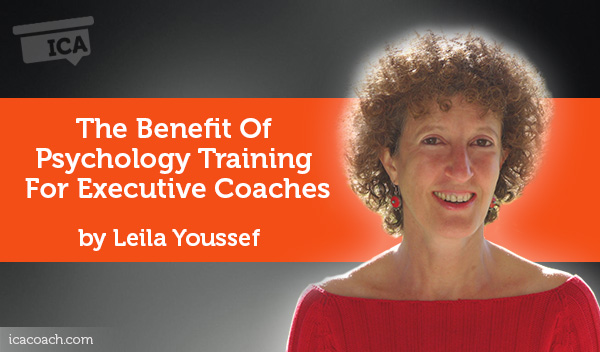
Research Paper By Leila Youssef
(Relationships and Dating Coaching, SPAIN)
How and why would executive coaches benefit from some psychology training?
Coaching is about taking action to create change. Leila Youssef 2013
The 19th Century Englishman, John Henry Newman, once said,
To live is to change, and to be perfect is to have changed often.
By this criterion, coaching is alive and well – and has plenty of living left to do! [1]
Coaching implies change and change implies looking at limiting beliefs, dysfunctional habits, transforming negative behaviors, etc. The root of that change implies dealing with the psychology of oneself and of the coachee if we aim to create sustained behavior change in our clients as well as a high profile professional career.
Tony Robbins says
emotional fitness, psychological strength is the most important aspect you need to acquire to get anything you want in your life.
In 1981 Timothey Gallwey a Harvard Educationalist, published his book the Inner Game of Tennis, claiming that if a coach can help to remove the internal obstacles to a player’s performance a natural ability to play will flow forth.
The opponent within one’s own head is more formidable than the one the other side of the net.
John Whitmore, a British expert in the field of Psych synthesis, went on to be Trained by Gallwey and founded the Inner Game in Britain. This lead on to Whitmore being asked to expand the methods he was teaching the Inner Game, into the business field and then into personal or life coaching. His definition is that coaching is unlocking a person’s potential to maximise his or her own performance. It is helping them to learn rather than teaching them.[2]
Three concepts and/or definitions get my attention in the above:
- Psychology studies the behaviour of human beings,
- The opponent within one’s head is more formidable than the one the other side of the net.
- Coaching is unlocking a person’s potential to maximise their own performance.
Accordingly I could say that coaching uses psychology to tackle people minds aiming at maximizing performance by unlocking people’s potential. While traditional psychology treats mental illnesses.
APA, the American Psychological Association defines psychology as follows:
Psychology is the study of the mind and behaviour. The discipline embraces all aspects of the human experience — from the functions of the brain to the actions of nations, from child development to care for the aged. In every conceivable setting from scientific research centres to mental health care services, “the understanding of behaviour” is the enterprise of psychologists.
The aim of this paper is:
- To clarify what is the panorama of Executive Coaching now and its relationship with Psychology?
- To help coaching students make clearer decisions when considering executive coaching.
- Provide guidelines about some psychology trainings useful for the executive coaching.
What is the panorama of Executive Coaching now?
There are signs that the coaching industry has reached a key point in its maturation. This maturation is being driven by at least three interrelated forces:
Coaching experience:
In terms of coaching experience, there appears to be an increasing awareness among coaches of a need to ground their practice in a solid theoretical understanding and empirically tested models, rather than the standardized implementation of “one size fits all” coaching systems. The complexity of human behavior and human systems requires coaches to respond and adapt their coaching in multiple ways.